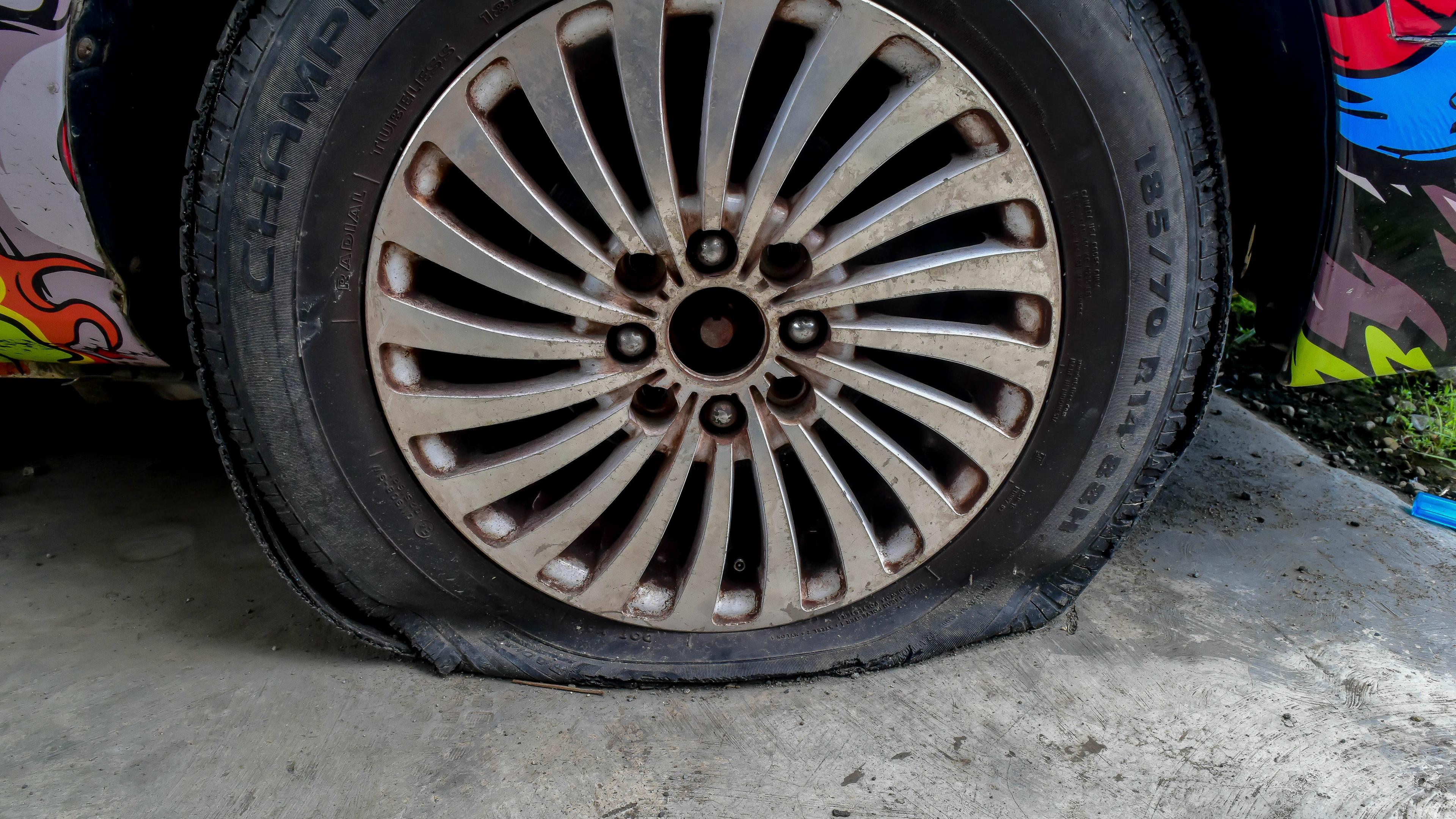Tire Buying Guides
Best price guarantee
Tire replacement coverage
24/7 roadside assistance
Easy returns

Towing a trailer involves more than just hitching it to your vehicle and hitting the road. The tires on your trailer play a crucial role in ensuring a safe, smooth, and efficient towing experience.
Trailer tires are specifically designed to handle the unique demands of towing, which differ from those of regular passenger vehicle tires. Understanding the basics of trailer tires is essential for making informed decisions when selecting, maintaining, and replacing them.
In this comprehensive guide, we'll delve into the world of trailer tires, covering their types, specifications, and maintenance requirements. By the end of this article, you'll be equipped with the knowledge needed to choose the right tires for your trailer and keep them in optimal condition for years to come.
Understanding Trailer Tire Basics
Trailer tires come in two primary types: radial and bias-ply. Radial tires feature steel belts that run perpendicular to the direction of travel, providing better stability, heat dissipation, and longer tread life compared to bias-ply tires. These characteristics make radial tires the preferred choice for most trailer applications, especially for highway use and long-distance towing.
On the other hand, bias-ply tires have crisscrossing nylon or polyester plies that form a diagonal pattern. This construction results in stiffer sidewalls, making bias-ply tires more suitable for rough terrain or agricultural use. However, they tend to have a shorter tread life and generate more heat than radial tires.
Want to know the difference between radial and bias-ply tires? Tap here
Load Capacity and Speed Ratings
When selecting trailer tires, it's crucial to consider the load capacity and speed rating. The load capacity indicates the maximum weight a tire can safely support when properly inflated. Always choose tires with a load capacity that exceeds your trailer's fully loaded weight to ensure safe and stable towing.
Speed ratings, represented by letters such as L (75 mph), M (81 mph), and N (87 mph), indicate the maximum speed at which a tire can safely operate. Make sure to select tires with a speed rating that matches or exceeds your anticipated towing speeds.
It's important to note that mixing radial and bias-ply tires on the same trailer is not recommended. Doing so can lead to uneven wear, reduced stability, and potential safety hazards. Always use the same type of tire on all axles of your trailer.
Factors to Consider When Choosing Trailer Tires
Selecting the right trailer tires involves a detailed understanding of several crucial elements that affect performance, safety, and durability. Building on the basics of trailer tires, it’s vital to explore specifics such as tire size, load range, tread pattern, and durability to ensure your selection aligns with your towing requirements.
Tire Size and Load Range
Proper tire size is critical for ensuring safe and efficient towing. Reference your trailer's manual to determine the precise tire size compatible with your trailer's design and axle specifications. Incorrect sizing can lead to uneven weight distribution and potentially hazardous towing conditions.
- Load Capacity: Choose tires with a load capacity that not only meets but ideally exceeds the maximum weight your trailer will carry. This ensures stability and safety, particularly under heavy loads.
- Wheel Compatibility: When upgrading to tires with a higher load range, verify that your wheels can support the additional pressure and weight. Not all wheels are designed to accommodate higher load ranges, so checking compatibility is essential.
Tread Pattern and Durability
A tire’s tread pattern significantly impacts its ability to grip the road and resist wear. Opt for tires with substantial, well-defined treads to maintain traction across various driving conditions, ensuring stability on both wet and dry surfaces.
- Sidewall Reinforcement: Look for tires with fortified sidewalls, which offer additional protection against impacts and are particularly beneficial for trailers frequently subjected to heavy loads or rough terrain.
- Advanced Compounds: Seek tires constructed with materials designed to resist punctures and abrasions. These compounds enhance the tire’s resilience, making them suitable for long distances and challenging environments.
Investing in premium tires from well-regarded manufacturers guarantees durability and reliable performance. Such brands often utilize cutting-edge technologies and rigorous quality standards to produce tires that meet the demanding conditions of towing. By focusing on these key factors, you’ll ensure a safer and more efficient towing experience.
Maintaining Your Trailer Tires for Optimal Performance
Ensuring your trailer tires are in top condition involves a thorough routine focusing on active monitoring and strategic storage techniques. This approach enhances safety and extends tire life, essential for regular or heavy-duty trailer use.
Proper Inflation and Regular Inspections
Keeping your trailer tires at the correct pressure is fundamental. Before each journey, use a precise gauge to verify and adjust the tire pressure according to the manufacturer's guidelines. This practice helps avoid common problems like overheating and inconsistent tread wear that can lead to tire failure.
Regularly assessing your tires is equally important. Look for any signs of irregular wear, cracks, or bulges—these could point to deeper issues. Any debris or objects embedded in the tread should be removed promptly to prevent punctures. Additionally, rotating the tires at consistent intervals helps ensure they wear evenly, which significantly prolongs their service life.
Storage and Protection Tips
When your trailer is not in use, the storage conditions of the tires can greatly influence their durability. Always keep tires in a shaded, dry area away from direct sunlight. Prolonged exposure to UV rays can lead to deterioration such as dry rot.
Tire covers are a practical solution to protect against environmental damage. They provide a shield from harmful UV rays and moisture, preserving tire integrity over time. Moreover, avoid letting your trailer remain idle for extended periods, as this can lead to flat spots and exacerbate dry rot, compromising the tire's performance and safety.
Choosing the Right Trailer Tires for Your Application
When selecting tires for your trailer, it’s essential to match the tire type and specifications to your specific towing needs. Different trailers have unique requirements, and selecting the appropriate tires ensures both safety and efficiency.
Travel Trailers and Fifth Wheels
Travel trailers and fifth wheels often carry substantial loads, requiring tires that offer robust support and stability. For these applications, consider tires that excel in durability and maintain their integrity under heavy loads and varying road conditions. Features that promote cooler running and stronger sidewalls are beneficial for long-distance towing.
Incorporating technology like tire pressure monitoring systems can greatly enhance your safety measures by offering updates on tire health. This proactive approach helps prevent potential issues during travel. After long trips or storage periods, it's wise to perform thorough checks for any signs of stress or wear, ensuring your tires remain dependable.
Boat and Utility Trailers
For boat and utility trailers, prioritize tires designed for superior performance in wet conditions. These tires should have features that enhance grip and stability on slick surfaces, such as boat ramps, with specialized tread designs to reduce the risk of slipping.
Ensuring the tires match the weight demands of your trailer and its load is crucial to avoid overburdening them. After using your trailer in saltwater environments, rinsing the tires with fresh water is recommended to prevent salt-induced corrosion, which can compromise tire durability. This simple maintenance step helps preserve the tires' integrity for future use.
Troubleshooting Common Trailer Tire Issues
Understanding and addressing common tire issues can prevent complications during your travels. By focusing on factors that contribute to premature wear and blowouts, you ensure the longevity and reliability of your trailer tires.
Premature Wear and Blowouts

Premature wear often results from incorrect load management, leading to stress and potential tire failure. Ensuring your trailer's load does not exceed the tire's capacity is crucial. Overloaded tires experience increased friction, which can cause overheating and wear.
Regular checks are vital for identifying early signs of tire damage. If you notice any discoloration or surface irregularities, it may be time for a replacement. Keep an eye out for any abnormalities that could compromise the tire's performance, such as bulging or visible cords, and replace affected tires promptly.
Vibration and Uneven Wear
Vibration issues often arise from imbalanced tires, which can lead to uneven wear patterns. Balancing your trailer tires ensures smooth towing and prolongs their lifespan. Regularly balancing the tires can prevent excessive vibration and reduce wear inconsistencies.
Checking the alignment of your trailer's wheels is essential for maintaining even tire wear. Misaligned wheels can cause the tires to wear unevenly and affect the vehicle's stability. Additionally, review suspension components for signs of wear or damage, as these elements are critical to the overall balance and performance of your trailer tires.
Investing in Quality Trailer Tires for Peace of Mind
Ensuring safety and reliability starts with choosing the right trailer tires. High-quality tires are an investment in safety, providing enhanced performance and longevity during your towing journeys. Low-grade or incompatible tires can lead to problems that jeopardize your towing experience and result in unnecessary expenses due to repairs or accidents.
When selecting trailer tires, delving into comprehensive tire buying guides and reviews is essential. These tools offer detailed evaluations of tire performance and durability, helping you to make a choice that aligns with your towing needs. Pay attention to feedback from fellow trailer owners with similar requirements, as their insights can be invaluable in guiding your decision.
The advantages of investing in durable, well-engineered trailer tires are significant. Not only do they enhance towing safety, but they also reduce the likelihood of maintenance issues, thus saving you money in the long run. Quality tires are crafted to endure the demands of towing, providing resilience against wear and environmental challenges. This durability results in fewer replacements and repairs, granting you peace of mind for every trip.
Investing in quality trailer tires is a crucial step in ensuring a safe and enjoyable towing experience. At SimpleTire, we are committed to providing you with a wide selection of top-tier trailer tires, along with expert guidance to help you make the best choice for your needs. Shop for tires online at SimpleTire and let us help you find the perfect set of trailer tires for your next adventure.
Ready to find the perfect tires?
Search By